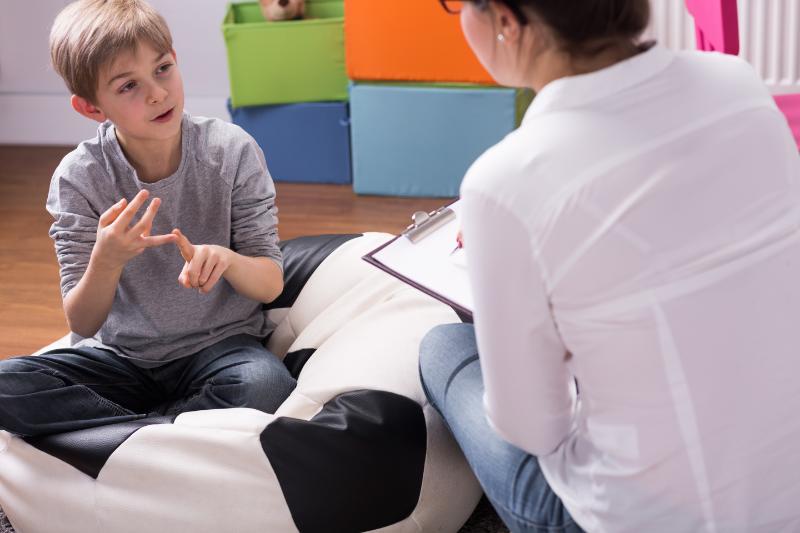According to the CDC, approximately 2.7 million kids and teenagers in the U.S. suffer from some kind of depression. Remember that just like adults, children can also face challenges when it comes to mental health.
During childhood and teenage years, children tend to experience frequent mood swings and irritability as a normal part of growing up. As a parent, it is important to identify when these feelings develop into a different, more severe issue.
Some signs that could spark an alert when it comes to your child’s well-being include:
- Irregular sleeping patterns
- Changes in appetite
- A sudden decrease of interest in hobbies
- Broken relationships with family and friends
By closely monitoring these changes in your child's behavior, you can take important steps to support them in facing obstacles. This can lead to early intervention and promote a healthy journey towards their well-being.
Children and teens can experience depression in various ways. Some signs that can help you identify this mental health condition may include:
- Acting out behaviors
- Episodes of irritability and anger
- Anxiety
- Fatigue
- Worsening academic performance
- Sleep difficulties that range from sleeping too much to not enough
- Low self-esteem
- Loss of interest in activities they once enjoyed
- Frequent mood swings
- Physical symptoms like headaches, gastrointestinal issues, and loss of appetite
Besides these symptoms, teenagers may also face issues like:
- Isolation from friends and family
- Sudden changes in dietary habits and weight gain/loss
- Intrusive thoughts of self-harm, death, or suicide
Although not frequent, children who deal with severe cases of depression could also experience paranoid delusions, hallucinations, and self-harming behaviors.
Each kind of depression comes with unique challenges, but they can all significantly affect your kid’s well-being.
The most common form of depression is major depressive disorder (MDD), also called clinical depression. It is identified when symptoms last for more than two weeks and may affect your child’s ability to perform daily tasks.
Persistent depressive disorder (PDD) manifests with less severe symptoms, and children who suffer from it may be able to manage their activities. However, they often feel down and may not perform regular activities or excel at school as they usually would.
This type of depression is diagnosed when symptoms last over a year.
Just like for adults, depression can develop in children due to factors such as:
- Environment: Dealing with problems at home or school can become truly challenging for your child.
- Genetics: If your family has a medical history of mental health conditions, your child may be more susceptible to developing depression.
- Stressful life events: Moving to a different city, changing schools, or losing a loved one could significantly affect a child’s behavior.
Mental health and behavioral conditions like depression often need a multifaceted approach to achieve lasting healing, especially in children.
Depending on the severity of the symptoms, treatment may range from psychotherapy and lifestyle changes to medication management:
- Cognitive-behavioral therapy (CBT) helps recognize and change harmful habits like negative self-talk and constant isolation.
- Adopting a healthy lifestyle by limiting screen time and sugar intake, exercising regularly, maintaining a balanced diet, and getting enough restorative sleep can significantly impact your child’s mental health.
- When needed, antidepressants can aid in regulating the brain’s chemistry and help increase dopamine levels.
Managing depression through a comprehensive approach is the most effective strategy for symptom control. It's important to note that this treatment may take a few weeks to yield noticeable results, and your child might feel disheartened by not experiencing immediate improvement.
As you continue supporting them by attending therapy and monitoring their medication treatment, you can also help your child by:
- Educating yourself and other family members: Understanding the challenges your child faces can help build an environment of support and comprehension.
- Offering verbal encouragement: By focusing on your child’s strengths rather than their flaws, you can help them have a more positive outlook on life.
- Relaxing with physical, creative, and meaningful activities: By playing sports or table games, watching a movie, or other activities your child enjoys, you can help them boost their mood.
- Limiting screen time: Encourage your kids to reduce screen time and prioritize face-to-face socialization with their friends and family.


